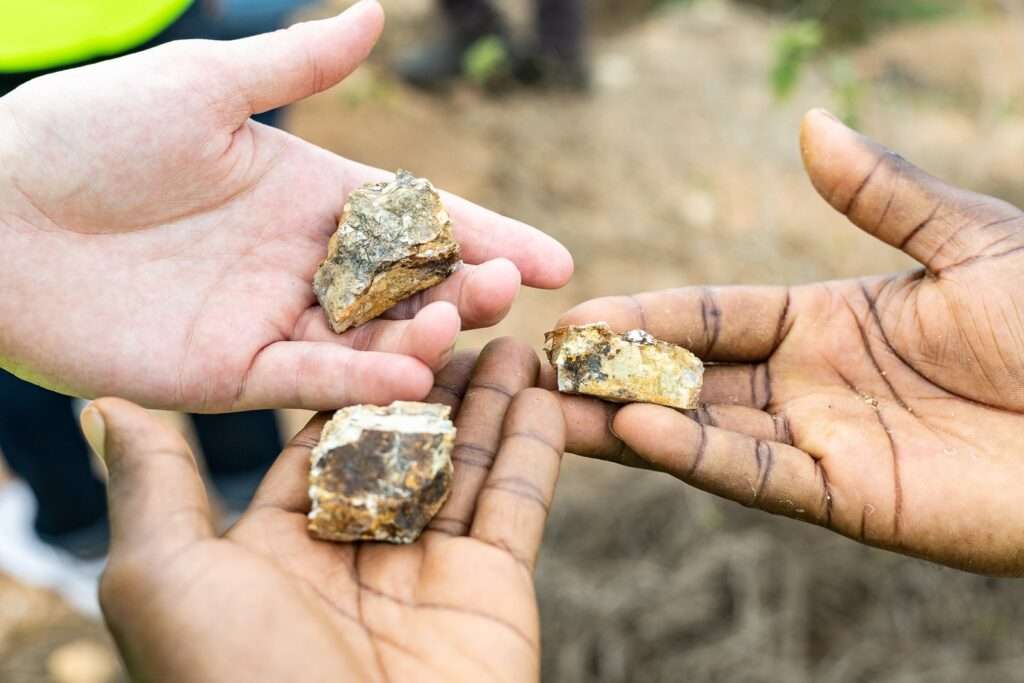The Government of Ghana (GoG) has initiated a formal review of its mining lease agreement with Atlantic Lithium, operator of the much-anticipated Ewoyaa Lithium Project, in response to a sustained decline in global lithium prices that has disrupted the economic fundamentals of the venture.
Speaking before Parliament, the Minister for Lands and Natural Resources Emmanuel Armah-Kofi Buah confirmed that the Australian mining company had officially appealed for amendments to the existing lease terms.
The company’s request, submitted to the Minerals Commission, cites economic pressures triggered by a sharp downturn in global lithium markets, which have rendered the project’s initial financial models unsustainable.
“The Ministry has informed Cabinet of Atlantic Lithium’s request, and approval has been granted for a revised memorandum to be submitted.
“Once Cabinet has completed its review, the updated lease will be brought back to this House for consideration and potential ratification.”
Emmanuel Armah-Kofi Buah, Minister for Lands and Natural Resources

The Ewoyaa Lithium Project, located in Ghana’s Central Region, has long been championed as a cornerstone of the country’s strategy to enter the global critical minerals value chain.
Lithium, a key input in electric vehicle batteries and renewable energy storage, is considered vital to the global energy transition.
Originally submitted to Parliament in 2024, the project’s lease agreement failed to secure ratification before the House adjourned for the general elections. Since then, market dynamics have shifted dramatically.
Lithium prices, which peaked above US$3,000 per ton at the time of the agreement’s drafting, have plummeted in recent months, prompting global industry-wide cutbacks.
The price collapse has led major lithium producers worldwide to pause operations, reduce output, and delay capital investments, heightening the financial risks for emerging projects like Ewoyaa.
Balancing Investment Viability and National Interest

The government’s decision to reopen the lease agreement reflects a delicate balancing act. On one hand, Ghana must uphold its credibility as an investor-friendly jurisdiction; on the other, the state has a duty to secure fair and sustainable benefits from its natural resources.
According to Minister Armah-Kofi Buah, the revised terms will be structured to ensure the Ewoyaa Project remains viable without compromising the national interest.
The updated lease is expected to introduce a framework that offers flexibility amid market volatility, while preserving Ghana’s economic stake in the operation.
“Any new terms will reflect both the challenges the investor is facing and the legitimate expectations of the Ghanaian people.”
Emmanuel Armah-Kofi Buah, Minister for Lands and Natural Resources
He emphasized the importance of retaining “transparency, equity, and value addition” in all critical mineral contracts going forward.
The renegotiation comes at a time when civil society organizations, Parliament’s Select Committee on Lands and Natural Resources, and host communities have voiced concerns about transparency and Ghana’s share of benefits from lithium extraction.
Government sources indicate that the revised lease will seek to incorporate some of these stakeholder recommendations, including stronger provisions on local content, environmental safeguards, and community benefit-sharing.
These changes are also aimed at realigning Ghana’s regulatory posture to support its ambitions in the green economy, particularly in minerals like lithium, graphite, and rare earths.

The outcome of the Ewoyaa lease revision could set a critical precedent for how Ghana approaches future mining contracts involving energy transition minerals.
With the global race to secure battery-grade materials intensifying, countries across Africa are revisiting fiscal terms and ownership models to ensure long-term national value.
The new memorandum is expected to be submitted to Cabinet in the coming weeks. If approved, the revised agreement will return to Parliament for debate and ratification later this year.
While details of the proposed revisions remain confidential, industry observers suggest they may include adjusted royalty rates, revised production timelines, and contingency clauses linked to commodity prices.
As global demand for clean energy materials grows, Ghana’s recalibration of its flagship lithium project could either solidify its reputation as a dependable mining destination or reveal deeper tensions between foreign investment and domestic expectations.
READ ALSO: Ghana Fire Service Records Major Progress Amid Resource Constraints



















